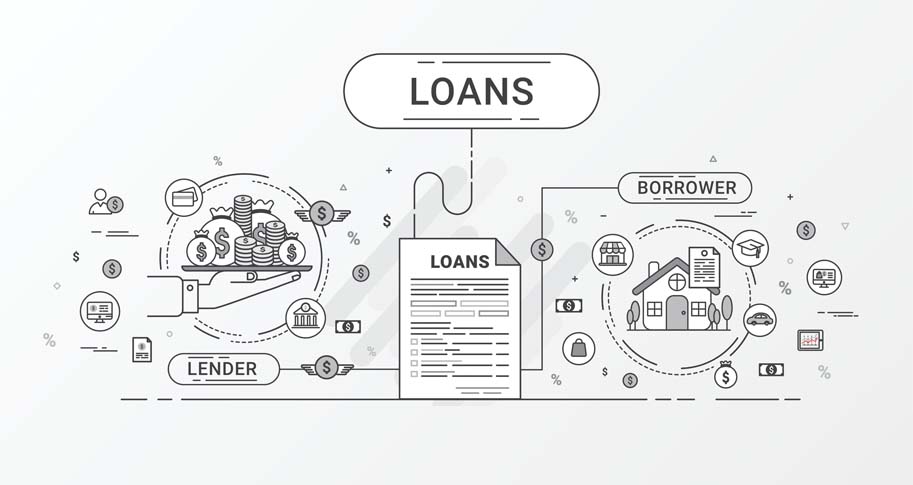
People are tough to predict. We often seem to act without rhyme or reason. We rush into commitments, we pursue improbable goals, we make decisions on a whim. We change like Arkansas weather. This is especially true in the world of finance. And nowhere is unpredictable behavior more pronounced – and more keenly lamented – than with payday loans.
On the surface, payday loans are relatively straightforward. Lenders supply a small sum in exchange for a postdated check from the borrower. Payment is typically due on the nearest payday or the next. When the due date arrives, borrowers can pay the loan with their check or with cash. They can also “renew” it or “roll it over,” which allows them to pay the interest (typically a fixed percentage of the loan balance) and renew the principal in part or in full.
What distinguishes these loans from other kinds of consumer credit are their lack of daily interest, their steep APR (usually 400% or more, as compared with an average of 9.41%), and the comparative ease with which they can be obtained. They no doubt form a sizable proportion of the nation’s borrowers, which makes their behavior well worth understanding.
In their article “Time to Repay or Time to Delay? The Effect of Having More Time Before a Payday Loan is Due”, Susan Payne Carter, Kuan Liu, Paige Marta Skiba, and Justin Sydnor provide a more robust picture of borrowers’ behavior as it relates to loan repayment. Contrary to their predictions, and perhaps to our intuitions, they find “that borrowers take little advantage of the grace period to accelerate their loan repayment.” In fact, they argue, “grace periods lead borrowers to ‘push off’ their repayment cycle by a pay period.” Their goal is to explain why a measure meant to aid borrowers seems not to have the intended effect.
Why, though, do borrowers with payday loans do this? The authors consider five reasons that borrowers do not take advantage of the grace period:
- Borrowers who first take out a loan may be experiencing a period of temporarily low income (or equivalently high unavoidable expenditure shocks like medical spending),
- Borrowers may face highly volatile income or expenditure shocks,
- Borrowers may be anticipating a positive income shock (e.g., a tax return) that they will use to repay debt, or
- Borrowers' risk aversion might make reducing consumption to help with repayments less effective.
While the authors concede that each of the above considerations can affect a borrowers’ repayment patterns, “none of them predict the patterns we see where borrowers with grace periods show the same repayment trajectories shifted out two weeks.” So, while each of the offered explanations for borrowers’ failure to repay is plausible, none of them fits the authors’ findings or tells us why borrowers don’t use their grace periods to repay their debts.
They reached this conclusion by collating data from a Texas payday lender and comparing the patterns that emerged to models they created to test these possibilities. These models simulate the sort of economic activity one would expect of a borrower under the specified conditions. For example, they modeled a borrower experiencing each of the considerations above: a period of low income, expenditure shocks, positive income shocks, and a heightened sense of risk aversion. Each adjustment to the model affected the results, but none of these adjustments accounted for borrowers not taking advantage of grace periods.
To explain the behavior of payday borrowers, the authors turned to the notion of “naive present focus.” Naïve present focus entails prioritizing immediate consumption over future expenses (such as upcoming dues). Laibson, 1997; O’Donoghue and Rabin, 1999). Borrowers often see little benefit in curtailing their spending early on, and they wait so long to reduce their consumption to help repay their debts that, by the time they begin, the grace period is nearly over.
Long grace periods exacerbate borrowers’ tendency to focus on the present, on immediate, short-term satisfactions, rather than on future repayments. Thus, grace periods fail to encourage borrowers to act in ways that lead reliably to timely repayments. Furthermore, many borrowers follow general rules of thumb that may not apply to their situation, such as paying in round dollar amounts or paying $20 of the principle amount each due date. These practices are unhelpful because, though they may apply under other circumstances, they aren’t applicable to the situation at hand. In the same way that a cough drop doesn’t help when you have a headache, these rules of thumb are often the wrong approach to the problem.
How Can Policymakers Help Borrowers?
“These findings,” they write, “have implications for policy makers who are interested in improving subprime credit markets.” For example, what does effective policy look like when having more time to repay a loan does not “by itself, meaningfully improve repayment behavior or result in smoother consumption profiles”? The authors recommend that policymakers “target the creation of regular repayment paths, such as minimum repayment plans,” in order to help borrowers who over rely on unhelpful rules of thumb or who suffer from a naïve focus on the present.
Of course, as legislatures across the country attest, not everyone believes subprime markets can be improved. Several states have outlawed payday loans precisely because of their exorbitant interest rates, which adversely affect already vulnerable populations. But opposition by lawmakers hasn’t stopped their growth. According to one estimate, “the global payday loans market generated $32.48 billion in 2020, and is expected to reach $48.68 billion by 2030, growing at a CAGR of 4.2% from 2021 to 2030.” The fate of efforts at reform and prohibition remains to be seen, but so long as payday lending exists, there will be no shortage of interest in their consequences.







